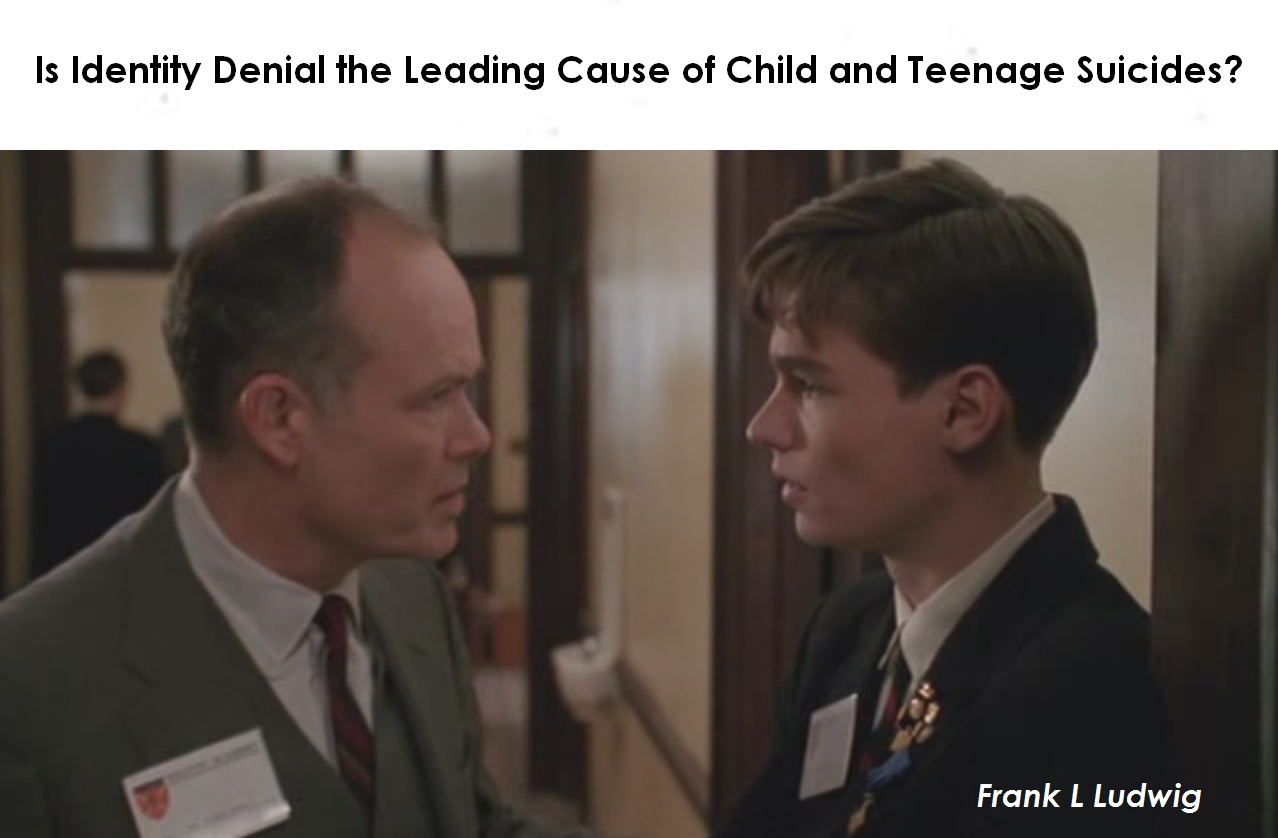
Almost all of us have been socially conditioned and do the same to our children without even thinking about it. But the fact that almost everybody is subjected to it doesn't mean it is not a traumatising experience.
While all children are born with individual identities, social conditioning forces them to take on the collective identities of their environments instead, such as religion, nationality, culture, ethnicity etc. I am certain that this identity denial is causing trauma in every affected child and leads to many if not most personality disorders and mental illnesses as well as substance abuse.
In my model of the Neurological Spectrum I argue that all humans are on a spectrum between individual and collective identities. Those at the individual end have, at least to some extent, resisted social conditioning and retained their individual identities while those at the collective end have absorbed all expectations of the groups they belong to. The evolutionary advantages of individual identities are the abilities to care, to think and to create, and the evolutionary advantage of collective identities is the ability to network.
In my Deindividuation Resister Hypothesis I further argue that human evolution relies on a minority of those who identify individually to initiate progress and on a majority of those who identify collectively to provide the network to spread it. This means that nature actually intends the mentally exhausting struggles faced by those who resist social conditioning.
But children's fights to retain their individual identities are rarely successful. Most of them are sooner or later broken by the mainstream at the cost of developing the aforementioned mental problems due to being denied their identities, and subsequently some of them decide that a life in which they can't be themselves is not worth living.
And while in these cases their suicide is the reaction to their own social conditioning, another main suicide trigger is the result of their peers' social conditioning. Younger children tend to unconditionally favour ingroup members, but older children have already learned to discriminate against group members who fail to conform; this is when the bullying starts.
Ostracisation and discrimination are particularly intense when the child belongs to a minority, be it due to their ethnicity, their sexual or neurological orientation, their gender identity or anything else that sets them apart from the mainstream.
Since conservatives usually identify collectively, the pressure to suppress one's individual identity is fiercest in conservative environments. A study in 2011 looked at the rate of suicide attempts of gay teens in conservative and liberal areas and found that not only gay teens but teens in general are more likely to attempt suicide in conservative towns.
As a child growing up in a conservative environment where I was bullied not only by classmates, teachers and parents but basically everybody around me, I frequently contemplated suicide myself. However, I never envisioned a particular scenario let alone approach the planning stage since I kept telling myself that life would become bearable once I was in control of it. I'm still very grateful to my younger self for this mature piece of advice.
One example of identity denial leading to suicide is that of Neil Perry in the film Dead Poets Society. Neil is a spirited teenager with a passion for theatre and literature.
His father (whom he has to address as 'sir') is on the far collective end of the neurological spectrum and therefore considers his son personal property to fulfil his expectations without any input from Neil himself. He has decided that his son will become a doctor and enrols him in an ultraconservative boarding school where he forbids him any extracurricular activities such as working on the school annual.
Neil auditions for and gets the leading part in a school play. Knowing that there is no chance in hell that his father would approve, he has to forge a letter of consent by him.
His father, having been informed, attends the end of the play and afterwards drags Neil to the car. Back home he informs him that he will withdraw him and enrol him in a military school instead. That night Neil takes a gun out of his father's desk and shoots himself. (The blame, of course, is put on a supportive teacher who encouraged his students' individual expression.)
I am convinced that identity denial is by far the leading cause of suicide in young people and that the most effective way to prevent suicide in children and teenagers is to let them be themselves.